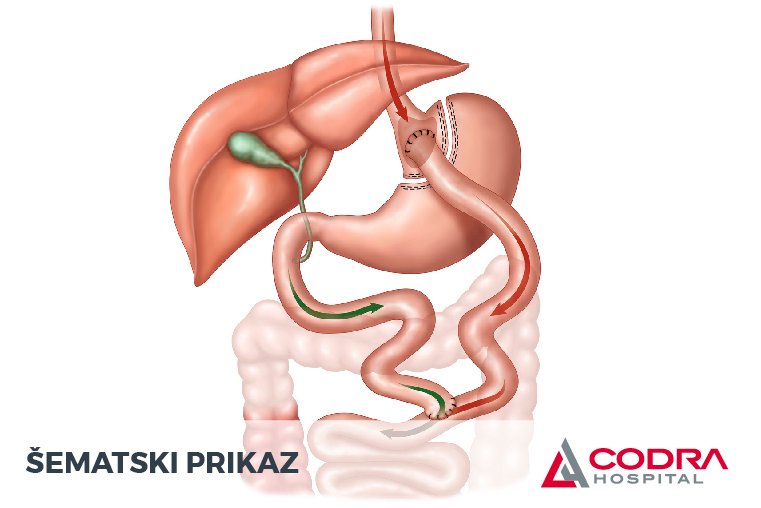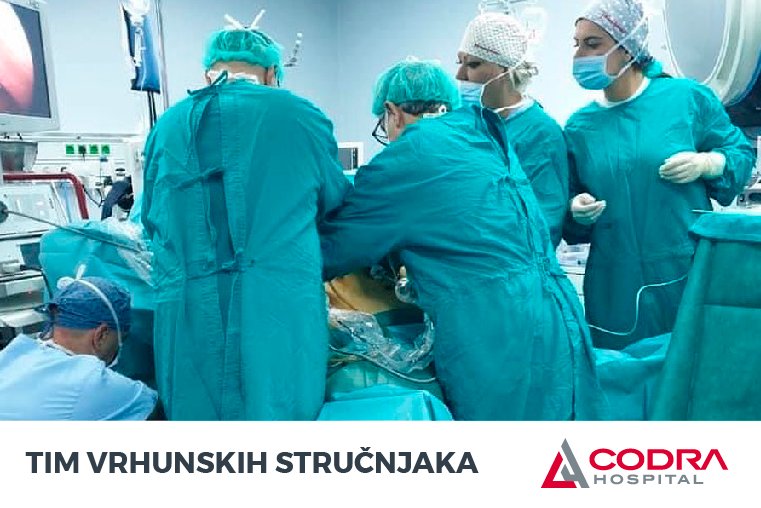Bariatric surgery isn’t just very helpful to the people who want to lose a lot of weight. It is also performed with the aim to reduce the body mass, as well as to lower the risk of life threatening conditions linked to the obesity.
Conservative obesity treatments, i.e. diets, the ones that are conducted in medical conditions and supervised by a doctor are proven unsuccessful in more than 90% of the cases. All of the patients are familiar with regaining excessive body weight after the initial body mass loss and they even gain more than they initially had.
Therefore medicine has identified surgery as permanent solution for obesity and dangerous comorbidity which follow obesity: the onset or presence of Diabetes, elevated blood pressure, elevated blood fats and accumulation of fats in blood vessels, hormonal disorders, joint damage, hormonal disorders accompanied by the absence of menstruation in women and erectile disorder in men.

Within a year after the surgery the patient reaches the normal body weight, while the positive side effects are lowering of the high blood sugar, high blood pressure, fat and reducing of the joint pain. Stomach reduction surgery and adding a “bypass”, i.e. duodenal surgery results in getting off the meds and insulin when it comes to the patients who are taking those medications on regular basis and they suffer from diabetes.
The body weight loss results in lowering the high blood pressure, healing of obstructive ‘’sleep apnea’’ (stopping breathing during night time snoring), as well as completely normalizing blood fats and hormones. Almost every patient stop taking medications which they were taking prior to the surgery. Although this sounds almost surreal, it is a truth that little is known about.
WHAT IS BARIATRIC SURGERY AND WHY IS IT PERFORMED?
Bariatric surgery is a set of all kinds of procedures, encompassing the surgical changes of digestive tract with the aim to reduce body weight.
It is a fitting therapy in cases in which diets and physical exercise do not produce a favorable result and also in cases of serious health issues caused by obesity.
Bariatric surgery is performed a view to reduce body weight as well as to lower the risk of life threatening conditions linked to obesity, such as:
· High blood pressure
· Heart attack and stroke
· Other cardiovascular diseases
· Diabetes mellitus type 2
· Sleep apnea
· Non-alcoholic fatty liver
Bariatric surgery established its place in infertility treatment, especially in cases in which hormonal imbalances are caused by obesity.
WHO ARE THE CANDIDATES FOR BARIATRIC SURGERY?
Bariatric surgery is a surgery of choice for:
· All of the patients whose BMI exceeds 35 kg/m2
· All of the patients whose BMI is 30-34.9 kg/m2 , and who have associated diseases caused by obesity: cardiovascular diseases, type 2 diabetes, sleep apnea etc.
The surgeon, taking heed of his team’s opinion (endocrinologist, cardiologist, nutritionist, psychiatrist) identifies the candidates for bariatric surgery and chooses the surgical procedure itself. The choice of surgical procedure depends on BMI, patients general health condition and age.

SURGICAL PROCEDURES AVAILABLE WITHIN THE BARIATRIC SURGERY
- Nowadays there are different surgical techniques available with which doctors strive to achieve reduction of the volume of the stomach or to lower the ability to absorb nutrients within the digestive tract.
The leading centers of bariatric surgery in the world have singled out two surgical procedures as the most fitting ones. Sleeve gastrectomy and gastric bypass. Both of which have been routinely performed at CODRA hospital for many years.
All of the surgeries are performed in a laparoscopic way, without an incision, with special instruments being introduced through small openings in the abdomen and the whole procedure is being visualized via special camera which creates an image for the surgeon on a large screen. This kind of surgical approach grants the patient fast recovery, reduces the postoperative pain, early recovery of the digestive functions and prompt return to day to day activities.
Stomach narrowing
Stomach narrowing, sleeve gastrectomy is a procedure with which you reduce the volume of the stomach by 75%, making the stomach into a form of a tube or a sleeve (therefore the name). In this way the stomach loses the storage capacity, food intake reduces, hormonal pathway that regulate satiety changes and the patient begins to lose weight.

Gastric bypass
Gastric bypass is a procedure in which the stomach is first cut, and the small remaining part is connected to the small intestine. This procedure not only reduces the volume of the stomach, but also excludes a significant area of the small intestine from the resorption process.
This method is extremely effective, both for losing excessive weight, and for regulating, above all, diabetes. It should be noted that after obesity surgery, patients can eat food normally, but quickly achieve satiety, and excessive and compulsive food intake is no longer possible.
With adequate pre surgery preparation and proper selection of the patients obesity surgical treatment results in fast and tangible effects and reduction of the body mass is followed by normalization of blood pressure as well as regulation of the blood sugar and cholesterol. Long term effects are virtually identical after these two surgical procedures therefore the age of the patient, BMI, associated diseases are the main guidelines when choosing the specific surgical procedure for each patient.
Bariatric surgeries result in significant positive changes:
- Quality of life improves significantly
- • Cessation of the need for excessive food intake
- • Loss of constant hunger
- • Loss of 60-70% of excess weight in just one year
- • Significantly better regulation of blood sugar, sometimes up to the complete cessation of intake of insulin and diabetes medications
- • Blood pressure normalizes in most patients
- • Improving heart function
- • Breathing function normalizes, “sleep” apnea disappears in most patients
- • Hormonal regulation of the menstrual cycle is normalized in women
- • Polycystic ovary syndrome disappears in most patients
- Recovery after the procedure is quick, thanks to the minimally invasive procedure
Thanx to the minimally invasive( laparoscopical) surgical technique the recovery period is short. The foreseen hospital stay is 2- 3 days.

Methodology of success of CODRA Hoospital anti-obesity surgery:
- Detailed preoperative preparation with specialists examinations (endocrinologist, cardiologist, pulmonologist, transfusiologist, radiologist and anesthesiologist);
- The best possible care and hospital conditions;
- Modern operating block with seven ORs, one of which is equipped with all the state of the art equipment for bariatric surgery
- 4. Intensive unit with central monitoring and on-call anesthesiologists (24 hours)
- 5. CODRA Hospital with an experience of 5000 surgeries per year
For a successful and safe bariatric surgery, as well as the postoperative period, in order to obtain the envisaged and planned results, it is necessary to include a whole team of doctors. It needs, not only a lot of experience in surgery, but also the highest standards in intensive treatment of such patients. That is exactly the type of team CODRA Hospital has, a fact substantiated with results during many years practicing of bariatric surgery.
The head of the CODRA Hospital team, composed (in addition to surgeons) of anesthesiologists, endocrinologists, cardiologists, nutritionists, psychiatrists and psychologists, is Prof. Dr. Miroslav Ilić, a surgeon with multiple decades of experience in bariatric surgery, with constant consultation with the world’s biggest names in the field.

